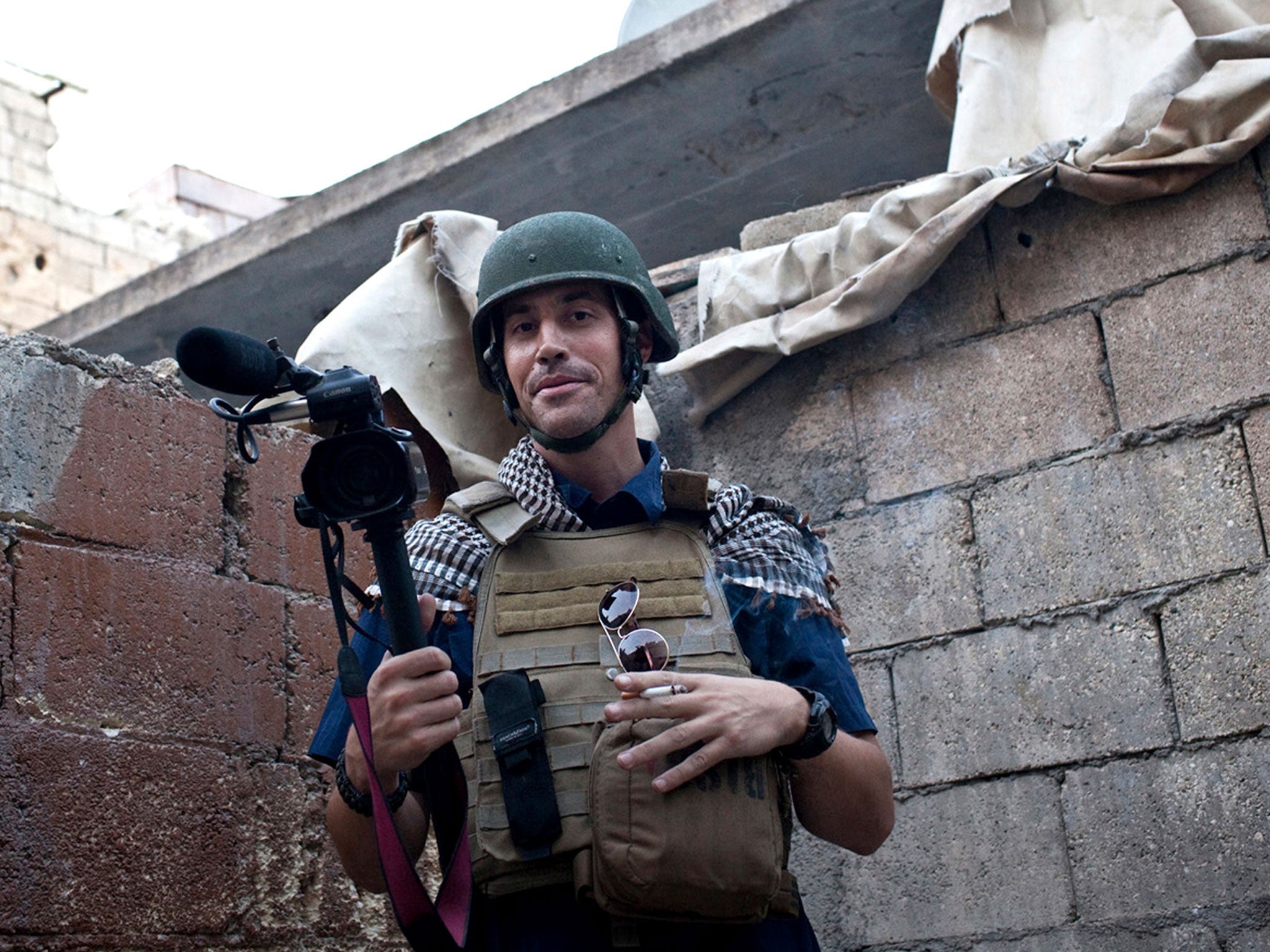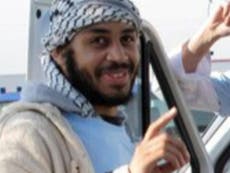The jihadi 'Beatles' are captured, but don't forget their victims
Some of us knew those who were murdered and missing. I had met Peter Kassig and Steve Sotloff, and I had, over the years, worked alongside Jim Foley in Afghanistan, Iraq, Libya and, lastly, in Syria. He was a good friend. I was supposed, before being sent to cover the Gaza War at the time, to go on the Syria trip with John Cantlie in which he disappeared


The capture of El Shafee Elsheikh and Alexanda Kotey ends the hunt for a group of British jihadis who achieved fame in the lexicon of terror by murders and tortures of helpless hostages. The end of “The Beatles”, as they became known, is of great symbolic significance, but the two men are of important practical value, eager as they are said to have been to offer information about their Isis comrades.
What happens to the pair is yet to be decided. The US military is unlikely to let go of them into the custody of others while the questioning by American and British intelligence officers yields gains. The information provided has, according to security sources, already led to a number of operations hunting down Isis fighters. Information gathered from their mobile phones and satellite phones may, it is hoped, lead to finding out what has happened to remaining hostages, including the Briton John Cantlie, who had appeared in a number of Isis propaganda videos but has since disappeared.
Cantlie was kidnapped along with the American Jim Foley, a fellow photojournalist, who was later beheaded on camera by another of the British group, Mohammed Emwazi, or “Jihadi John”. Emwazi was killed in a drone strike in 2015. The fourth member of the homicidal “band”, Aine Davis, is in a Turkish prison after being convicted of terrorist offences.
Emwazi had also decapitated two Americans, the journalist Steven Sotloff, aid worker Peter Kassig, and the British aid workers Alan Hemming and David Haines. All the beheadings were filmed and disseminated abroad in Isis “snuff” videos. Investigators hope Elsheikh and Kotey will be able to lead them to where the dead are buried.
Kuwait-born Emwazi, who was favoured by the Isis hierarchy for the international publicity he had gathered, was killed in a drone strike in 2015. It was a significant coup carried out by a number of international intelligence agencies which placed a tracking device to locate him. British security officials were well aware that the extrajudicial execution of a British subject would be controversial and lead to criticism. But it was felt that his elimination would be a significant psychological blow to Isis and send a message that terrorists, however well protected, can be tracked down.
Davis was arrested in Turkey in 2015 for allegedly planning attacks in Istanbul. Authorities in Ankara turned down informal approaches to have him extradited to the US and Britain. Information he has provided has, it is said, been subsequently passed on to London and Washington.
The plan had always been to capture Elsheikh and Kotey alive, say security sources, and gain intelligence rather than kill them, despite statements by politicians in London that British jihadis can expect to be killed. The details of the two men, as well as those of other “high-value targets”, were circulated among Western forces and their allies.
A rigorous system of biometrics and fingerprinting of prisoners had been instituted, and it is this which is said to have led to the detection of the two men when they attempted to present false identities at a checkpoint of the Kurdish-led SDF (Syrian Democratic Force) on the way to the Turkish border. The fighters handed them over to US special forces who carried out the tests to establish who they really were.
The nickname “The Beatles” was given to the British killers by some European hostages the group had held. These prisoners were later freed, it is believed, after their governments paid tens of millions of euros in ransom. The US and UK have a policy of not paying money to kidnappers, and this played a part in sealing the fate of Jim Foley and the other American and British hostages. President Obama subsequently ordered a review of policy, but there has been no pronouncement on it from the Trump administration.
Some of us knew those who were murdered and missing. I had met Peter Kassig and Steve Sotloff, and I had, over the years, worked alongside Jim Foley in Afghanistan, Iraq, Libya and, lastly, in Syria. He was a good friend. I was supposed, before being sent to cover the Gaza War at the time, to go on the Syria trip with John Cantlie in which he disappeared.
Before their deaths, the hostages were tortured for days. Kotey, as well as taking part in some of the killings, was a keen inflictor of pain. According to other prisoners, as well as jihadi deserters, he specialised in waterboarding and administering electric shocks. Elsheikh was also fond of waterboarding and had taken part in crucifixions. The two men are believed to have been responsible for many of the 30 murders of prisoners the group had carried out.
The victims were brave people. The aid workers had gone to Syria to try and alleviate suffering in a terrible war. Jim Foley and other journalists had put themselves in harm’s way to shed light in a dark and pitiless corner of the world, carrying out the type of journalism which is more important than ever in our age of fake news.
There will be a debate now about what should happen to Elsheikh and Kotey. A lot will be said about what kind of judicial process they should face and where, and there will be calls to ensure that their rights are protected. One should also, amid all this, remember those who they had maimed and murdered, and the families left to cope with their grief.


Join our commenting forum
Join thought-provoking conversations, follow other Independent readers and see their replies